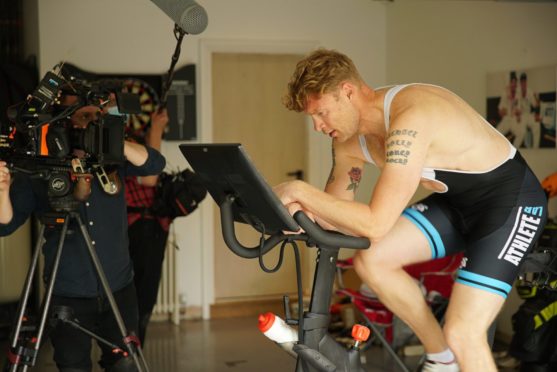I’m sure for a lot of people 2020 will at times have felt like it has been all too much. In fact I know some people will have said ‘I can’t take anymore’.
Losing family members, friends, hard business decisions, job losses, family upheavals and isolation – 2020 has had it all for a lot of people.
I’ve seen many people post things on social media about mental health and say ‘it’s ok not to be ok’ and the likes. However, when you are near your lowest ebb and feeling overwhelmed these comments are unlikely to give you even the smallest of lifts. ‘It’s ok not to be ok’ doesn’t even come close when you are near the bottom and cannot actually see the point of continuing.
I’m privileged to have this forum to write in and so I felt I should use that responsibility to talk openly about this important subject. I’ve had some personal mental health challenges during 2020. That is not something I ever thought would happen to me or impact me.
When things got bad I was lucky, I had some good support and I also knew it wasn’t normal to feel the way I did. Those who know me well will know I am very relaxed, rational and balanced (on the whole). If there was a spectrum for rationality I am at the end where it’s important to keep good stats on board games like Ludo and The Game of Life. My report card would say (and did say at school) that James is so laid back if he was any more laid back he’d be horizontal. (Teachers wouldn’t get away with writing that now!).
However, for one reason and another I got to the stage of feeling overwhelmed and really questioning a number of things, not a good place to be. I didn’t feel overwhelmed in terms of workload; I could get things done. I also didn’t feel overwhelmed by decisions, finance or anything similar. I was just mentally broken and needed to put myself back together again.
I sought out some help, took some time off and did some reading, and over the course of a couple of months I came back into balance. In fact actually I’d say the rebuilding process has made me better, stronger and more aware of myself. People might have thought I was a bit off form perhaps, but few would have known how I really felt. I was the epitome of OK on the outside and broken inside.
The reason I am writing about this now is that few people in a business context and fewer in leadership roles speak about their mental health. However, I have no issue showing some fallibility and actually the experience has made me better at home and at work. I think that because leaders show little real fallibility, then when comments are made about mental health they are often received by employees as being patronising or not real.
I’m not suggesting for one minute I am a fantastic leader and I am not suggesting business leaders and managers aren’t caring beings. However, I can now see why hierarchies can cause issues around this subject and pile on even more pressure for some employees. I can also of course see why being open about this topic might feel like a sign of weakness for managers too. However, without more openness people will never talk up.
The good news is mental health is in our view more often, it isn’t a surprise to hear people talking about mental health. However, I still think there is a taboo for some people to be seen saying they might have faced an issue.
For example, I found it remarkable watching Andrew Flintoff speaking about Bulimia and how it has impact his life and for so long too. Of course there is no reasons that it should be more or less likely to impact on a high profile male sportsman than anyone else. As I say, that makes it a taboo. Until more people openly discuss it and consider it as ‘normal’ as a sore knee or a cold then it will remain a topic not fully dealt with.
As we move into 2021 it is beginning to feel like we have something to look forward to. However, we will leave the year with people facing huge burdens which some will feel are insurmountable. When we are allowed to socialise, be out and be normal it is important that we don’t ignore the fact that many people aren’t in a position to return to normality in a mental health context. However, by showing our own vulnerabilities and fallibilities we can help others without even really doing anything.
James Bream was research and policy director at Aberdeen and Grampian Chamber of Commerce and is now general manager of Aberdeen-based Katoni Engineering
